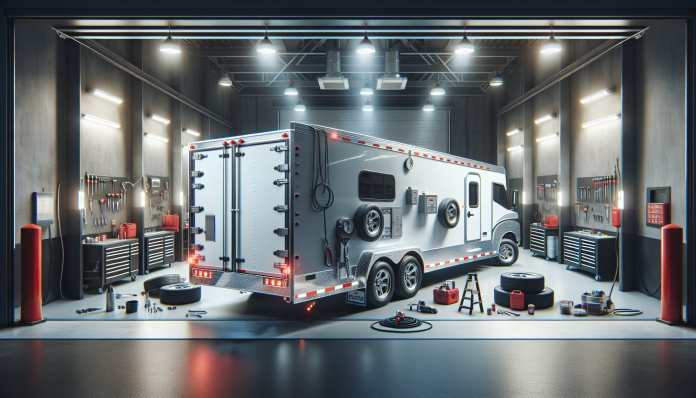
In the grand scheme of transport and logistics, the role that trailers play in moving freight is both monumental and often underrated. But like any vehicle, they require regular attention and care to remain in top condition. Whether you’re shuttling goods across city lines or shipping containers across continents, keeping your trailers well-maintained is crucial. To learn more about how to ensure they’re always road-ready, follow these essential maintenance tips that could help extend the life of your trailers and improve their overall performance.
Routine checks are crucial
Start with the basics: routine checks. At least once a month, take the time to inspect your trailer’s tires for any signs of wear and ensure they’re properly inflated. This might seem like a small step, but it can significantly reduce the risk of blowouts and accidents. Next, don’t overlook the brake systems; functional brakes are vital for safety. Also, ensure all lights and electrical systems are working correctly, and that coupling devices are securely attached. Paying attention to these areas can help you catch potential issues before they escalate, allowing you to learn more about your trailer’s specific needs and address them promptly.
Moreover, include an examination of the wheel bearings and suspension systems. These components are under constant strain and if left unchecked, they can suffer from severe wear and tear, leading to more significant issues down the line. It’s wise to periodically repack wheel bearings with fresh grease and inspect the suspension for damaged parts, ensuring everything is well-secured and in proper working order. These regular inspections will facilitate smooth operations and can significantly enhance the longevity of your trailers.
Preventative maintenance goes a long way
It’s no secret that preventative maintenance can save you a lot of time, money, and headaches in the long run. This includes scheduling regular service check-ups with professionals who can provide a more thorough inspection and maintenance of your trailer. Besides professional servicing, make it a habit to clean and lubricate moving parts regularly to prevent rust and wear. Additionally, inspect your trailer for any structural damage and address it immediately. In the long run, these practices will not only keep your trailer in good running condition but will also preserve its value.
In addition to the standard service checks, consider implementing a detailed service log for each trailer. This log should record all maintenance activities, the replacement of parts, and any repairs that have been carried out. By keeping meticulous records, you can track recurring issues and understand the maintenance history of your trailers. This proactive approach not only helps in scheduling future maintenance tasks but also contributes to creating a comprehensive preventive strategy that can preemptively mitigate potential issues.
Dealing with the unexpected
No matter how well you maintain your trailer, unexpected issues can still arise. Be prepared by keeping an emergency repair kit on hand, which should include basic tools and spare parts. It’s also helpful to be familiar with the common problems that your specific trailer type might encounter and have a basic understanding of how to troubleshoot them. Training your staff on these basic techniques can also be hugely beneficial, ensuring that minor issues can be dealt with quickly and efficiently on the road.
Staying ahead with technology
Lastly, embracing technology can hugely benefit trailer maintenance. Modern tracking and management systems not only help keep track of your trailer’s location but can also monitor its condition. Staying updated on new maintenance methods and tools is also crucial, as these can offer more efficient ways to keep your trailers running smoothly. In the age of smart logistics, leveraging technology is an excellent way to stay ahead.
Maintaining your trailers might seem like a daunting task, but with these essential tips, you can ensure they remain in top-notch condition, reducing the risk of delays and further securing your logistics chain. Remember, a well-maintained trailer is a reliable trailer.




